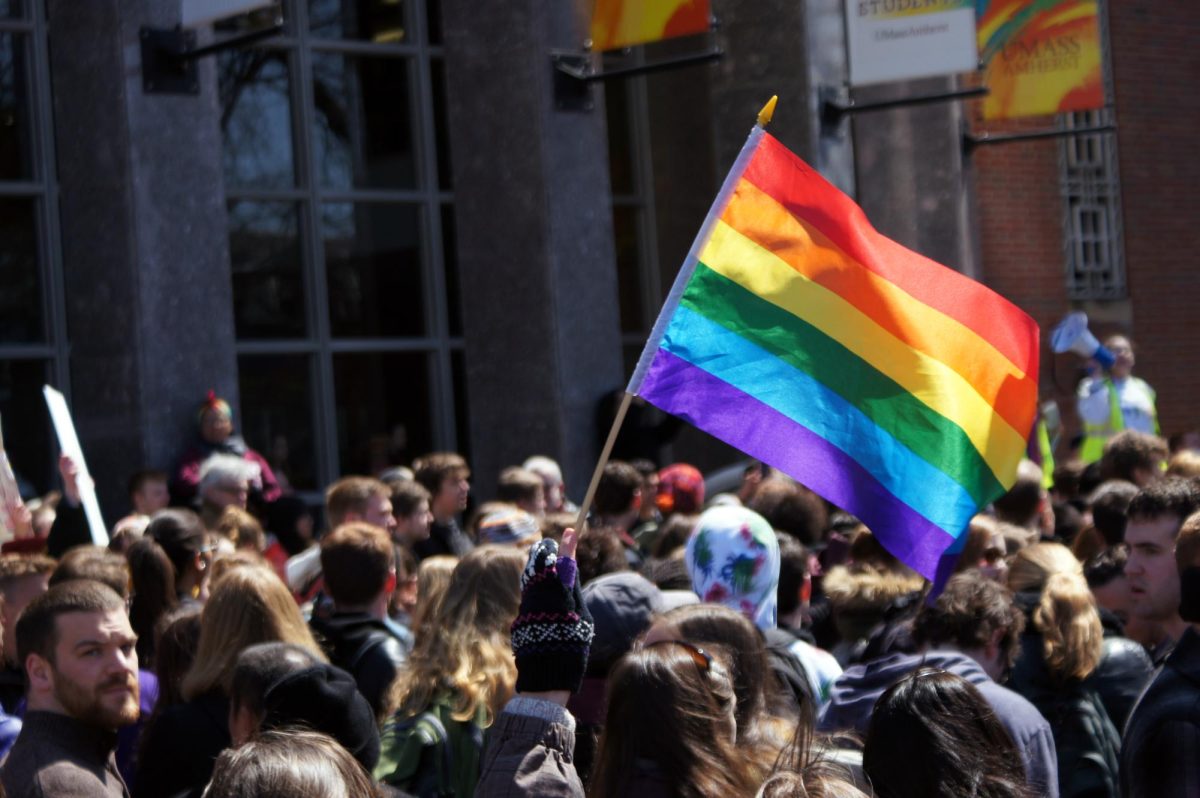
As a third-grader, I was a female on a baseball team that was made up of mostly males, believing I should receive the same opportunities the boys did. On the first day of practice, my childhood best friend and I were playing catch. I angled my glove awkwardly and when I attempted to catch the baseball, it hit my mouth. My coaches told me that I would have to wear a mouth guard for the rest of the season, along with another girl, who ended up quitting.
Because I was hit with a baseball and was a female, my coaches rushed to the assumption that I may be more incapable than the boys on the team and that I needed more protection than my male teammates.
Although it occurred on a small scale, it was not difficult to see the gender discrimination at the age of nine.
Benevolent sexism may initially sound like an abstract idea that only academics in sociology discuss. However, this form of sexism occurs on a daily basis – through compliments, media perpetuation of stereotypes and generalized stereotypes that are held about men and women.
This breed of sexism may sound protective and well intentioned, yet just like hostile sexism (which comes in the form of blatantly sexist ideas asserting that women are inferior to men), benevolent sexism breeds stereotypes and inhibits the progress of women.
Rikki Rogers writes about her experiences with benevolent sexism in the workplace in Forbes.
“A male co-worker, let’s call him John, baked and brought a pecan pie,” she writes. “Our director tasted it, then cheerfully walked around the rest of the party exclaiming, ‘You have to try John’s pie. It’s so good. And he made it himself! His wife didn’t even help!’”
You have probably directly or indirectly encountered benevolent sexism without realizing it.
Think of benevolent sexism as a backhanded compliment. A compliment such as, “You look even better than I thought you would today” may have a positive intention, but it contains some negative or insulting undertones. Hostile sexism is typically an outright negative comment like, “You look awful today.” We may accept the first comment as having a good intention but regard the second as downright tactless and rude. The same goes for benevolent sexism versus hostile sexism.
Benevolent sexism could also be seen as a problem on campus, particularly relating to nightlife. For example, female students are often perceived as requiring male protection to avoid walking home alone at night or going to a party alone.
The ideas that are benevolently sexist assert that women need the protection of a man, which makes more sense in an environment where women feel unsafe. Since benevolent sexism highlights a woman’s positive characteristics and provides a feeling of safety, it is easier for women to accept than acts of hostile sexism, making it more ubiquitous.
This might explain why I am likely to accept a male friend’s offer to walk me home at night although I do not believe in benevolently sexist ideas. Women exhibit this behavior out of fear and necessity, not by choice.
Women who perpetuate stereotypes themselves often do so in response to being in a hostilely sexist environment. While both men and women are capable of brushing off subtler forms of sexism, women are more likely than men to regard the behavior as socially unacceptable.
Benevolent sexism provides a sort of security blanket to females from more blatant forms of sexism. However, these seemingly more positive expressions of sexism only cause the issue of gender inequality to become more entrenched in daily life and society.
Gender inequality should be an issue that all students are educated about – in elementary school, high school and even college. By shedding light on harmful gender stereotypes through education and proving to children that these ideas are invalid, we can halt these sexist ideas from being further perpetrated.
Brianna Zimmerman is a Collegian columnist and can be reached at [email protected].



















Anne • Apr 26, 2015 at 4:07 pm
Came across this post in a search on a related topic. I applaud your awareness of benevolent sexism and its need to be addressed at all levels. Keep up the good work. According to a study of 19 countries using the ambivalent sexism Inventory method, benevolent sexism was a significant predictor of gender equality regardless of level of hostile sexism. “Beyond prejudice as simple antipathy: Hostile and benevolent sexism across cultures” (2000)
I am an engineer and I can foresee a time when it will pervade my industry as well.
http://awomaninabottle.blogspot.com/2015/04/there-are-50-women-at-this-stem-company.html
Be aware and be vocal!
Genghis Khan • Apr 23, 2015 at 8:12 am
You’re worried about this.
Meanwhile, in Islamic countries, women can’t drive, are being killed by their husbands for going out alone. Daughters are being clitorectimized, their genitalia mutilated. Non-Islamic women, down to age 9, are being gang-raped.
Here in America women make up the absolute majority of college students. Men are going MGTOW because of all the power women are granted in a relationship, and especially in a marriage if/when it ends.
And you’re worried about this.
No wonder more and more people are not taking feminists seriously.